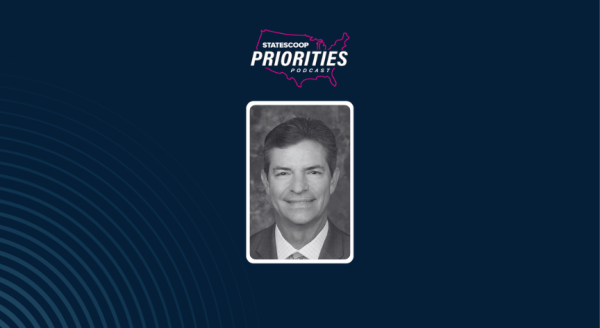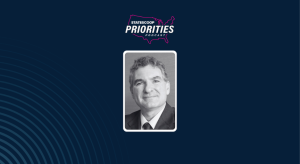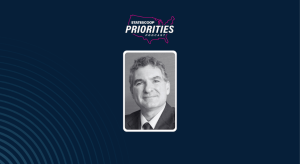
At different stages in consolidation, states look to a more efficient future
Mississippi and Nebraska are at very different parts of their consolidation efforts, but their goals and ambitions as they change the way their governments work along the way couldnt be more in line.
[Consolidation really enables] the strategy piece of where can you go next? Mississippi CIO Craig Orgeron says on the first episode of the third season of StateScoops Priorities podcast. If those things are aligned and government is pulling in one direction, thats going to be big.
Consolidation and optimization has been a top priority for state chief information officers for as long as the National Association of State Chief Information Officers has been keeping track of top 10 priorities, and neither Orgeron nor Nebraska CIO Ed Toner say it will drop from the list anytime soon.
In Mississippi, Orgeron says the state is attacking consolidation through conversations with agency leaders and emphasizing how it can change governing. The states decentralized nature, however, makes that difficult, he says.
I think many states find themselves potentially with decentralized governance models, and by definition, even if systems are shared, if the models to run those systems are decentralized, you have lots of people resources all over the place, Orgeron says. Theres big, big room for efficiencies in government.
In Nebraska, Toner has unlocked some of those efficiencies. The state has already saved tens of millions of dollars he says since Toner and his team completed their state consolidation in 2017 . Now, his team is unlocking more than just financial efficiency but improvements in security and project management.
Were doing things that we wouldve never even thought about Toner says. We knew that we were going to get a lot of efficiencies by consolidating, but now that weve consolidated, weve got a large amount of brain power in one place. Now theyre looking for ways to innovate and automate so that we can really reduce size in the future.
On the podcast:
- Craig Orgeron, chief information officer, Mississippi
- Ed Toner, chief information officer, Nebraska
- Jake Williams, associate publisher and director of strategic initiatives, StateScoop
Things to listen for:
- Toner’s not concerned about the workforce crunch imposed by a wave of retirement-age employees leaving the state payrolls, thanks to the states consolidation and efficiencies.
- Orgerons approach of consolidation has been to meet agencies where they are and also to find the best solution, including using software and hardware refreshes as an opportunity to begin a conversation about how to get started.
- In Nebraska, consolidation enabled a strong state project management office which is ensuring that employees and leadership continue to work on the right things and optimize the architecture of the states technology systems to support the states most critical applications.
- States should lean on metrics and data to emphasize the success of consolidation to leadership and other agencies, Orgeron says.
- Thanks to the consolidation efforts, Toner standardized the PC purchasing process across state government out of the state CIOs office. In addition, his state now supports more than 18,000 desktops all built on the same image.
Priorities is StateScoop’s podcast chronicling the top 10 priorities of state chief information officers. The show is based on the National Association of State Chief Information Officers’ annual list of top 10 priorities , and produced in partnership with the association. Listen to Season 1 (2016) and Season 2 (2017) .


